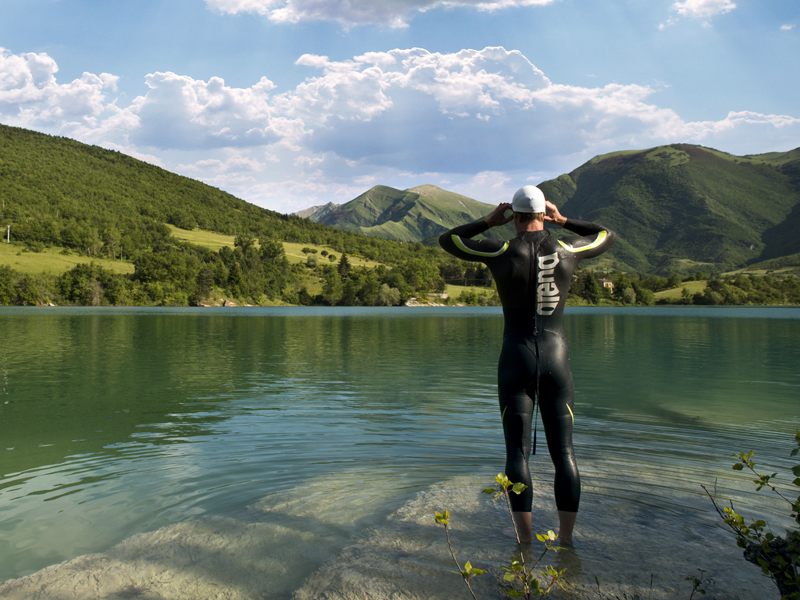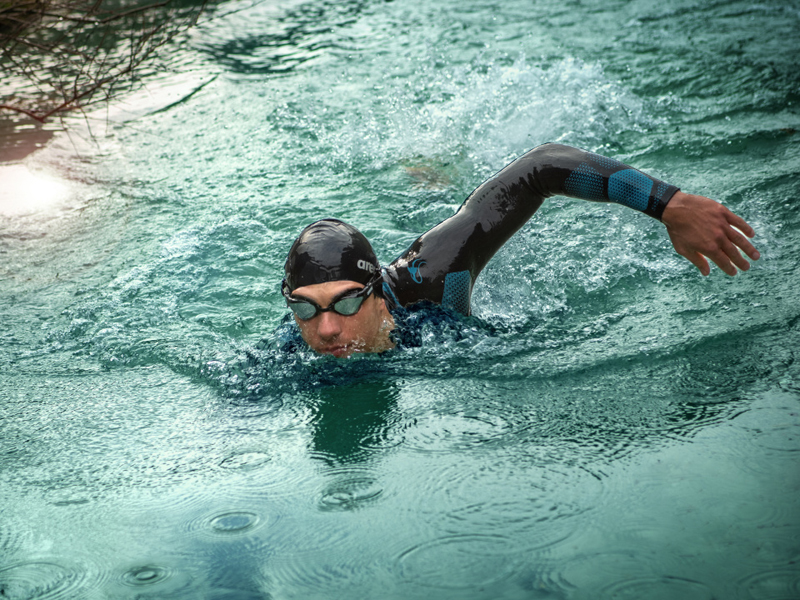Open water swimming: Tips for a safe swim in the lake
If you’re thinking about going for a refreshing swim in your favourite lake this summer, keep these common-sense tips in mind to make sure you stay safe.
Throughout the summer, many of us gravitate toward water whenever we get the chance, whether it’s a weekend getaway or a longer holiday. The beach is the most obvious choice, but lots of people also head to their favourite lake. Immersed in nature, cool and often less chaotic than ocean beaches, lakes offer many great activities for the whole family, from canoeing to camping to walks in the woods.
Swimming is also an appealing activity on a hot day, of course, and while there may be nothing more pleasant than gliding through the water in a peaceful setting, you do need to be aware of your surroundings and take some common-sense precautions to stay safe.

Keep the following tips in mind for a safe swim in the lake
Always obey posted signs.
Many major lakes are subject to water quality testing, and if pollution levels are high, swimming may be prohibited. (And, of course, even if the water is considered clean, don’t drink it!) Signs may also be posted to warn swimmers about sudden drop-offs, strong currents or other dangers.
Research before you go.
If you’re extra squeamish about creepy-crawlies, a quick online search may be able to tell you if your lake is home to anything particularly unsavoury. You don’t need to worry about sharks or jellyfish, but freshwater lakes can harbour leeches, snakes and other creatures that are best avoided.
Enter the water carefully.
Don’t just kick off your shoes and run into the lake without looking to see if there are sharp or slippery rocks, and don’t blindly jump off a dock without checking the depth of the water. If you do jump in, hold your nose or wear a nose clip – the dread “brain-eating amoeba” (Naegleria fowleri), which prefers warm freshwater, works its way up from the sinus cavities.
Don’t swim alone.
Unless you’re in lake with a designated swimming area and a lifeguard on duty, don’t swim by yourself. You should always have a buddy with you in open water.
Watch for motorboats,
Jet Skis and other lake users. Don’t assume that they can see you.
Get your bearings.
You won’t have a black line on the bottom of the lake to help you swim straight, so make sure you identify landmarks that can guide you, and then look up periodically to check that you’re on track. Rather than swimming straight out into the middle of the lake, consider swimming parallel to the shore. This can help you avoid boat traffic and allow you to stay in warmer, shallower water.
Swimming in a lake might be intimidating the first time if you’re used to straight lanes, smooth water and walls to rest against, but many people swear that open water swimming is the best way to feel more alive and in tune with nature and your own body. Give it a try, whether you’re swimming to train or just looking for a refreshing dip or relaxing float!

Do you have any other tips for first-time lake swimmers?
Articles you may also like…
Open water tips&tricks by German elite swimmers Florian Wellbrock and Rob Muffels







